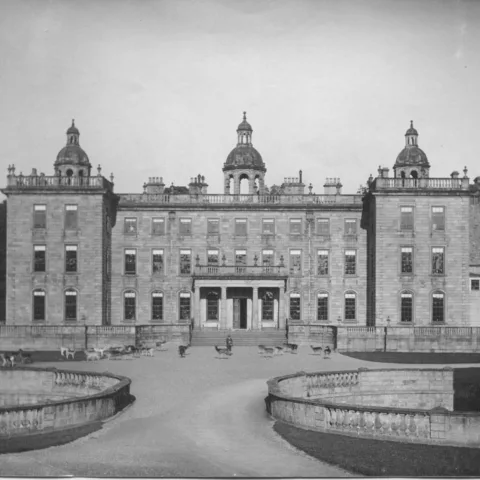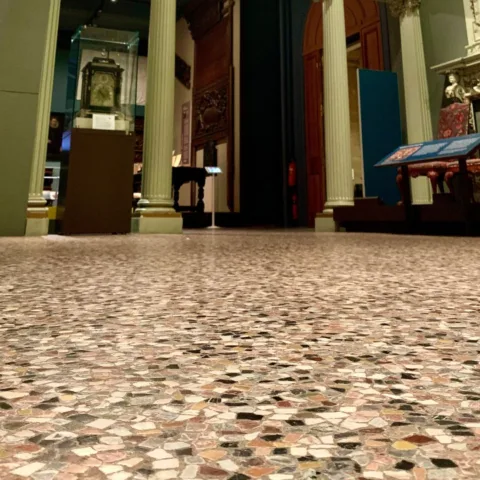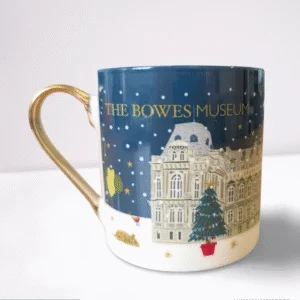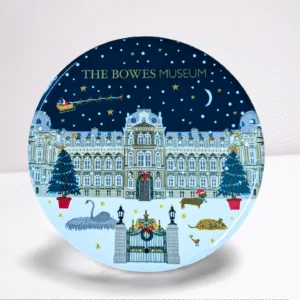The Bowes Museum Blog

(Cautionary) Tales from the Archive: The Perils of Document Interpretation
Last week, on the hunt for something festive to share from the collections, the Museum’s Digital Communications Officer, Alison, found a series of delightful postcards, sent between January and December 1906. All addressed to a Miss C Pattison by a certain H. Dobson Wheatley, they give little away. As those who still send postcards in the digital age will confirm, there is little space to say very much, but even so in this collection words are sparse, and the reverse of the postcards often bears only Miss Pattison’s address.

One of the postcards from the collection, dated November 22nd 1906, ANT/FL/604.2.

Reverse of another postcard from the collection, dated November 13th 1906, ANT/FL/604.8.
The cards are certainly charming and sent quite frequently from H.D.W. to Miss C Pattison (one a week in November) and it is easy to see why the Museum’s Digital Communications Officer was interested in the story behind them, a story that the lack of details makes all the more intriguing.

Another of the postcards from the collection, dated November 23rd 1906, ANT/FL/604.1.
After contacting me in the archives to see if I could fill any of the blanks of this story, I did some digging. We know from the document history that the book of postcards was given to the Museum by a Miss Catherine Pattison, but beyond that the object entry on our collections database said little else. Taking the addresses on the postcards as a starting point, I discovered that HDW was Herbert Dobson Wheatley of Stockton-on-Tees (he had helpfully signed a few of the postcards H. Dobson Wheatley). Family records revealed that he was born in 1865 in Brotherton, North Yorkshire, and that in 1897 he married an Edith Annie Blythman, also born 1865, in Spennymoor, County Durham. Herbert died in 1929, and Edith died in 1933. They are buried together in Stockton, and as far as I can establish had no children.

One of the many Pattison photographs in the Museum collection, this one is of Catherine Pattison as a child, 1973.43.75/ARC.
Burial records tell us that Catherine Pattison, meanwhile, died on Easter Sunday in 1979, and is buried in Wolsingham, just down the road from St John’s Chapel in Weardale, the address to which most of the postcards were sent. This connection to the Chapel was also particularly helpful in establishing her origins, for it became easy to establish that she was the daughter of Reverend James Whitehead Pattison (1853-1936) and his wife Harriet.

One of the many Pattison photographs in the Museum collection, understood to be a picture of the Pattison family, 1973.43.464/ARC.
For those with interest in the history of the North East in the late 19th and early 20th centuries, this is a name that may well be familiar to you. James Whitehead Pattison was ordained in 1882, serving first in Seaton Carew, moving to Portrack Baptist Church, Stockton in 1890, and then on to St John’s Chapel in Weardale. In addition to his sacred duties, Pattison also had a keen interest in photography, and his collection of photographs is now viewed as somewhat historically significant, for it captures working-class life in and around Hartlepool and Bishop Auckland in the late 19th century.

Another Pattison photograph, entitled ‘Jim Dodds with horse and cart in snow’, 1973.43.23/ARC.
Upon the death of her father in 1936, Catherine bequeathed her father’s photographs to The Bowes Museum, alongside the postcards. And this is where we return to our story. What does this information mean for the story behind these postcards? That James served at Portrack Baptist Church in Stockton likely indicates how the Pattisons and Wheatleys crossed paths, since they also lived in the town. However, it doesn’t shed any light on the relationship between H.D. W. and Catherine. Through my brief sleuthing I have been unable to establish the year of Catherine’s birth, but given that she died in 1979 and her father was only born in 1853 she would almost certainly have been considerably younger than Herbert Dobson Wheatley. H.D. W. had also been married to Edith for nine years when these postcards were sent so it appears friendship, and not romance as Alison had excitedly imagined, was the most likely explanation.

Postcard sent to Catherine Pattison by Herbert on March 20th 1906, ANT/FL/604.15.#
This tale from the archives is one, therefore, that contains several blank pages, gaps we may never fill. It has, however, reminded us of a startling collection of significant local interest, and provides a snapshot (if a slightly blurry one) of society at the turn of the twentieth century. And if this tale has a moral, it’s that the interpretation of historical documents is a complex business, one made easier in the company of an archivist!
By James Illingworth, PhD Student, French Library & Archive at The Bowes Museum






